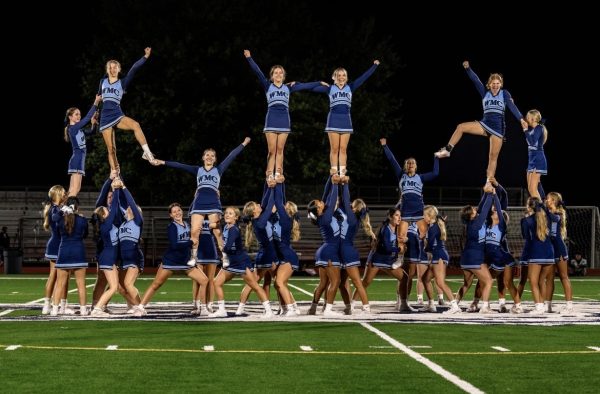Why Banning Books is Bound to be Bad

Credit: Getty Images
According to the American Library Association, the number of books banned and challenged in the United States of America has doubled from 2020 to 2021. Though it may seem like a minor issue in the greater scope of today’s problems, the possible effects of banning books have a magnitude that is too harmful and dangerous to ignore and has consequences deeply tied in many of these modern problems.
One example of a recent ban on books is Senate Bill 2292, passed in Tennessee, which seeks to restrict “obscene materials” in schools. While many parents may agree with this bill since they do not want their children being exposed to material that might be inappropriate in the parents’ opinion for their age group, the bill has many negative impacts that must be considered as well when deciding whether or not one supports it. For example, the “obscene materials” described in the bill are outlined in very vague detail, which might allow for books to be placed under that category that don’t deserve to be. Additionally, according to an article by Book Riot titled “States That Have Enacted Book Ban Laws: Book Censorship News, August 26, 2022”, this may cause some databases and ebooks to be restricted from use if anything within them is placed under this category of being “obscene.” This is especially dangerous because it limits access to further learning on a wide variety of topics that are not at all explicit and do not deserve to be restricted. For some students, databases and ebooks may be the most popular methods by which they inform themselves of the world around them, and restricting them from these valuable resources would then be restricting them to all of this potential knowledge as well.
Additionally, the bans are actively restricting the students’ exposure to the experiences of others communicated through literature, autobiographies, and memoirs. This exposure is paramount to their development of empathy for struggles that other groups of people experience as well as knowledge and awareness of the problems and different cultures of the world they live in. For example, according to data from PEN America Index of School Book Bans from July 1, 2021 to June 30, 2022, 41% of banned books contained “LGBTQ+ themes, protagonists, or prominent secondary characters” and 40% contained “Protagonists or prominent secondary characters of color”. Disproportionately restricting books that amplify the voices of people of minority groups with experiences unique to these identities leaves a large portion of the student population uninformed about them This empathy is especially important because it allows for the emerging student population to have a better understanding of the problems that these minorities are facing and therefore have the knowledge and desire that would be necessary to dismantle these problems. The absence of these voices in classrooms and school libraries also leaves a large portion of the student population that relates to these identities unable to find relatability for experiences and problems that might feel intimidating and isolating to them and therefore might have a large negative impact on them as well.
Furthermore, these bans are further complicating the lives of teachers, school librarians, and administrators during a time at which they are already suffering as a result of being understaffed. According to an article by CAP titled “Book Banning, Curriculum Restrictions, and the Politicization of U.S. Schools,” in Texas, bans on over 700 books are being enforced through systematic reviews of every school district in the state. This is an incredibly time-consuming mandate that is especially difficult to meet with the insufficient number of teachers that they have to complete it.
However, hope for challenging these bans is not lost, as the majority of Americans across all political parties have expressed that they are in agreement against book banning. People have already begun to protest across the United States – for example, according to the article by CAP mentioned earlier, people in Missouri sued districts for removing books that addressed issues affecting racial groups, genders, people with disabilities, or certain socioeconomic classes. Parents and voters have particularly responded to the idea that teachers should have the greatest say in which books are provided in their classrooms. For example, it was discovered that 92 percent of parents and 85 percent of voters support that “the decisions about the subjects students are taught in schools” should be made primarily by the teachers in a nationwide survey conducted by the Campaign for Our Shared Future.
In conclusion, it is imperative that the American people continue to actively combat legislation seeking to ban books in their states, because if they do not, the erasure of certain information and experience may have strong negative impacts that restrict the population from being aware of and readily able to address related problems in the world around them.

Dakotah is a senior and a Journalism II student this year. She is very excited to be returning to The Paw for her first year as an Editor-in-Chief. Outside...











